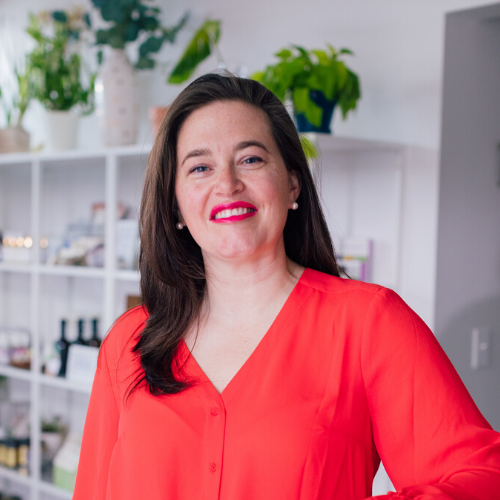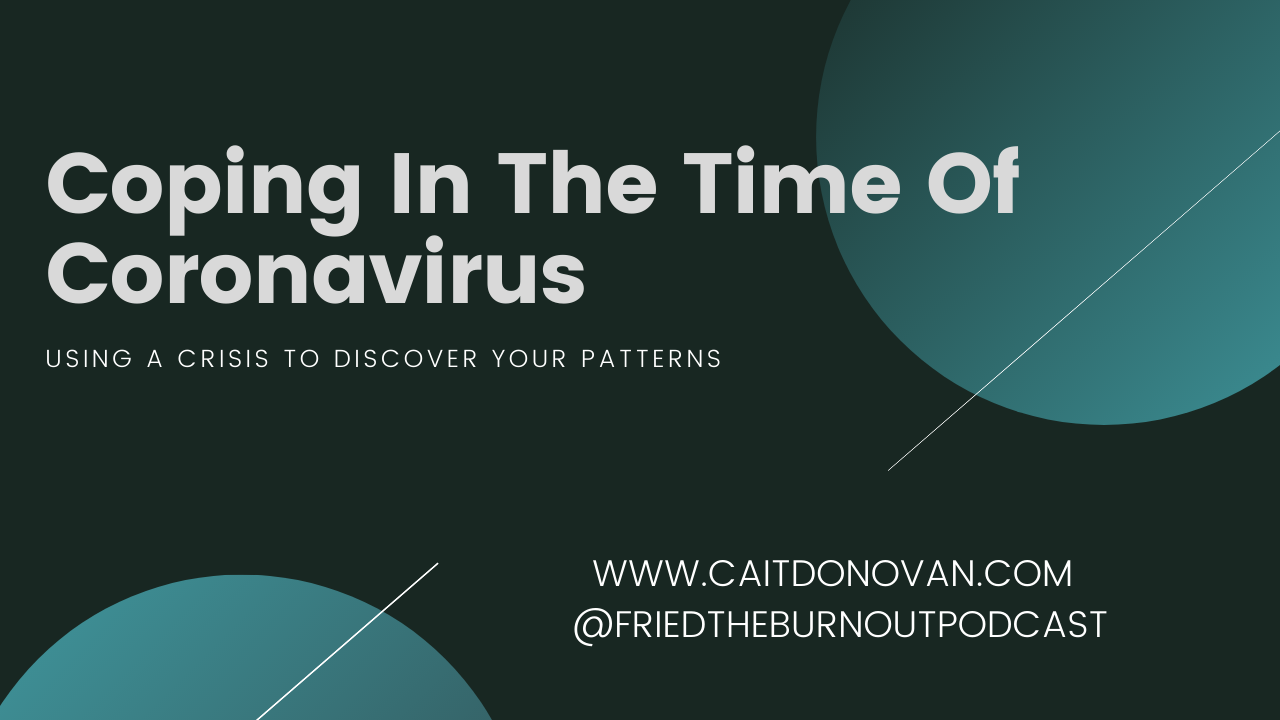Coping mechanisms – they’re necessary – we need them, we use them, and often we do it well. Sometimes we do it SO WELL that we keep ourselves in situations that are hurting us because ‘we can handle it”.
Sometimes, we don’t even realize how many coping mechanisms we’re using or how much energy they cost us because they are such normal patterns of behavior for us that we simply don’t notice.
But Burnout. Burnout comes along and we are often forced to stop and take a look at these strange silent habits in the background of our lives.
Or Coronavirus. Coronavirus comes out and everyone reacts.. Well, differently.
I saw an IG post from @fordeonfire, Melissa Forde who is an RN that also works with burnout that totally hit it on the head. Her post said:
“Denial, avoidance, and judgment are not superior coping strategies to anxiety, worry, or overwhelm.”
Melissa Forde, RN
Read that again.
There’s a lot of judgment happening now (ME INCLUDED) about everyone else’s reactions but I’d like to ask you for a moment to go inside – to get to know your own coping mechanisms for once you know them, you can CHOOSE when to use them. Choose when they are useful. Choose when it’s time to change them.
My friend, mentor, and teacher, Lillian Pearl Bridges taught me that coping mechanisms are created in childhood as protection to real and invisible trauma and we repeat them, basically unknowingly for the rest of our lives.
For a lot of us, however, she said that they stop being as useful to us around the age of 40. We still use them, but they cost us more energy and are less successful than they once were.
My add to that is: This is what happens when we burn out. We lose our ability to use those same mechanisms that protected us for so long. The same things that once protected us now cost us more than they give.
And we are left with a choice. Push through, continue, and crush ourselves – or evolve.
This current crisis gives us a great opportunity to observe ourselves, to see our coping mechanisms at play, and to make decisions about how we want to act in the future.
For me, my first reaction to Coronavirus was, “It’s no big deal, I’m not afraid, we don’t even have any real information and it’s impossible to tell, everybody relax”. I didn’t read too much news, I just went about my day.
That coping mechanism is avoidance and avoidance makes us feel invisible, immune, and superior. We do it to protect our vulnerabilities.
The next thing to come in was just light anxiety. In my head, I was saying, “People are overreacting, but I’ll just slow down a little. I can still go have lunch, this is fine” but I was hyperaware of my surroundings and other people’s hands on their damn faces. Lady at Trader Joes, I saw you lick your finger after touching my card…
This is an avoidance of the situation PLUS an avoidance of my own emotions.
When I felt this, I went straight to meditation and mantras. The next day, I woke up early bc.. Anxiety..and did some chanting. I felt better. Coping mechanism was successful.
Next, I fell straight into my phone until my eyes hurt. I was coping by gathering information, the cost for me was too high here. I exhausted myself and interrupted my sleep. Coping mechanism was costly.
The next thing was, “Ok, this is getting serious, I will get those groceries to help myself feel safer, but I’m feeling anxious, am I closing my office? Can I afford to?”
This is planning and using a feeling of control to quell anxiety. It’s not negative, necessarily, but planning is a mechanism that I use a lot (anyone who loves lists uses planning to cope).
After shopping, I did a lot of prepping and chopping. I was coping by being organized and busy. I felt the best at this point. I like getting all that fennel nicely sliced into a glass container so that I can throw it in eggs in the morning. Satisfaction, coping mechanism successful.
And then the internal voice (and sometimes external) continued, “OMG, WTF is wrong with people? GET HOME, You’re going to kill my family members!”
This is judgment, and the desire to control other’s behavior. This keeps me ‘safe’ because I’m ‘doing the right thing’ and gives me superiority over the people who aren’t. Knowing I’m doing the right thing makes me feel more at ease.
And it swayed, “People can do what they want, it’s their lives!… oh, f(@& it’s not just their lives and they don’t get it. I’m scared, but I can’t control anyone, and I wish I could”
This is an attempt at acceptance and an acknowledgment of fear. I’m starting to come through the whole process, where my coping will bring me back to a place of feeling ‘normal’.
Knowing I was fearful, I exercised until I was drip sweating. Ending the stress cycle was important. Coping mechanism was successful.
So, basically, I’ve done them all: Denial, judgment, avoidance, anxiety, overwhelm, and worry. I’ve used my phone, my computer, meditation, mantras, and chanting. I’ve turned on binaural beats and typed up 4 articles. I finished writing an 8-week course for you that’s been on the back burner for a couple of months. I sweat and made my face red like a lobster. And it’s only been like 5 days.
If you’ve used ALL THE COPING MECHANISMS, I SEE YOU.
None of it is bad or good. It just is.
Take a moment to sit with yourself with curiosity.
How are you coping?
Is it helping?
Do you need a shift?
I’m off to meditate.
See you in the light
XOXO
C


